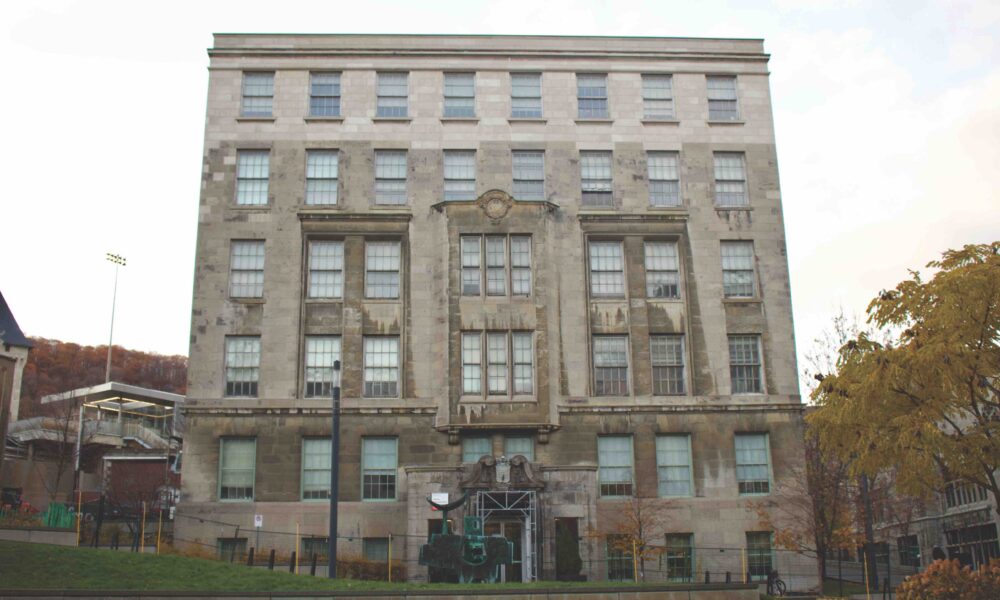Members of the McGill Senate and Board of Governors (BoG) convened remotely on Nov. 11 for their joint annual meeting. Discussions centred on how the university should move forward and fulfill its mission—the advancement of learning and the creation and dissemination of knowledge—in a landscape altered by COVID-19. Senators and governors reflected on how these changes have affected McGill’s workplace setting and approach to teaching and learning.
Following presentations about new academic and administrative initiatives, staff members were placed in Zoom breakout rooms to brainstorm potential improvements to McGill’s academic program delivery and “model of work,” referring to the transition toward a hybrid work style for many university staff.
Josephine Nalbantoglu, Dean of Graduate and Postdoctoral Studies, provided an overview of the interdisciplinary graduate programs McGill has developed in recent years. Such programs include the Ph.D. in Quantitative Life Sciences (QLS) and the Ad Hoc Master’s Degree in Digital Humanities.
Nalbantoglu commented on McGill’s implementation of stackable master’s degree programs—non-thesis master’s degrees achieved through the accumulation of graduate certificates or diplomas in a given discipline.
“I hope you can see that what this allows us to do is really pivot very fast [to] […] subjects that students are interested in,” Nalbantoglu said. “And they can get the knowledge [they] want and the skills [they] need to go on to subsequent certificates and build [them] into a master’s.”
Lorraine Mercier, New Model of Work Project Office director, fielded questions from faculty and staff about the office’s pilot project, which was introduced in March 2021 to examine various models of work to determine which one is best suited for McGill’s administrative unit.
In response to the increasingly hybrid nature of the university’s workforce, the project would implement and oversee the transition of McGill’s workspaces for both administration and faculty members from individual offices to wholly shared office-spaces, including open area workstations and dedicated areas for collaboration.
Mercier hopes that the pilot project’s model will enable McGill to create more efficient workspaces.
“It is a holistic approach,” Mercier said. “We are making changes to the physical space by proposing various space [typologies] for different cognitive focus, collaboration, learning and socialization.”
Adrienne Piggott, Associate director of Faculty Procurement, questioned how the New Models of Work Pilot project would manage workplace accommodations for individuals with disabilities. In response, Mercier noted that all of the office equipment introduced by the pilot project will be fully adjustable in terms of height, and that dedicated workspaces could still be provided for individuals with very specific needs.
Manuel Balán, associate Dean of Student Affairs for the Faculty of Arts and professor in the Department of Political Science, spoke about how best to advise students experiencing uncertainty due to the pandemic. He suggested that flexibility—such as providing remote, in-person and group advising formats—as key to managing the increased demand for faculty advising among students.
“We should not be thinking about seeing more students in less time,” Balán said. “We should be thinking about different ways of being able to see students and advise students.”
Moment of the Meeting:
Michael Fronda, Associate Dean (Academic), commented that while much of the meeting’s discussions centred on how new technologies have created increased flexibility in terms of work models and academic program delivery, it is equally important to remember why the institution adheres to certain traditional practices as well. Specifically, he invited staff to consider the value of in-person teaching, repeating the sentiment of Provost McCall-MacBain that McGill is not going to become an online university, and that in-person teaching is a core requirement for the fulfillment of the universities’ mission.
Soundbite:
“It is super important that new models of work allow for a lot of flexibility and choice so […] students and employees have the agency to choose a workspace that is firstly compatible with the nature of their work or study and secondly, compatible with their personal or preferred work style.”
—Paige Collins, Arts Senator, responding to the question of what McGill can learn from other sectors regarding its academic program delivery and work environment.







